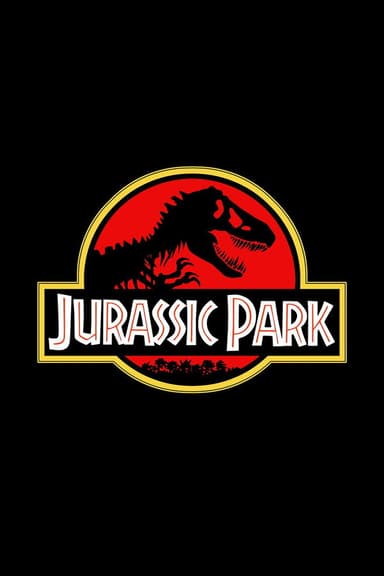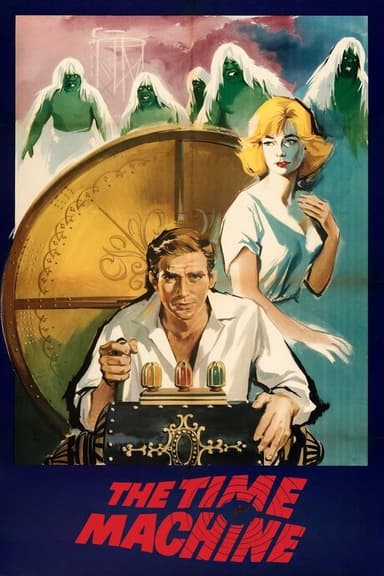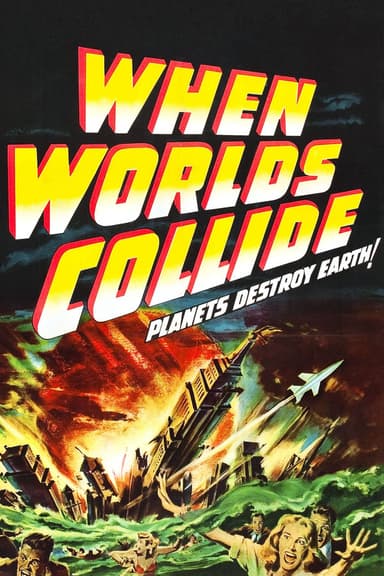
The Andromeda Strain
1971 • Science Fiction, Thriller • G
When virtually all of the residents of Piedmont, New Mexico, are found dead after the return to Earth of a space satellite, the head of the US Air Force's Project Scoop declares an emergency. A group of eminent scientists led by Dr. Jeremy Stone scramble to a secure laboratory and try to first isolate the life form while determining why two people from Piedmont - an old alcoholic and a six-month-old baby - survived. The scientists methodically study the alien life form unaware that it has already mutated and presents a far greater danger in the lab, which is equipped with a nuclear self-destruct device designed to prevent the escape of dangerous biological agents.
Runtime: 2h 11m
Why you should read the novel
If you loved the tension and scientific intrigue of the movie, you owe it to yourself to delve into Michael Crichton's original novel, where the stakes feel even higher. The book provides far deeper scientific exploration and nuanced characterization, letting you experience the chilling events from multiple fascinating angles that the film can only hint at. Reading the novel immerses you in Crichton's meticulously imagined world, granting a richer appreciation for the story's complexity, plausibility, and suspense.
The novel’s prose draws you into the characters’ inner thoughts and the intricacies of the Wildfire team's investigation, providing a sense of urgency and authenticity. You'll gain access to detailed scientific explanations and gripping behind-the-scenes decisions, as Crichton weaves real-life research into compelling fiction. This background gives the outbreak’s containment efforts greater context and realism, sharpening both the horror and fascination of humanity's encounter with a deadly extraterrestrial organism.
Choosing the novel over the film allows you to experience the unfiltered vision of its creator. While the movie captures many plot beats, only the book gives you the full spectrum of ethical dilemmas, technological speculation, and raw suspense. For fans of medical mysteries, speculative science, and character-driven drama, Crichton’s original work remains the definitive telling of this chilling story.
Adaptation differences
One of the main differences between Michael Crichton's novel and the 1971 film adaptation lies in the portrayal of characters, especially Dr. Peter Leavitt. In the book, Dr. Leavitt is a male character who secretly suffers from epilepsy, a key plot point that impacts the story's climax. However, in the film, Dr. Leavitt is changed to a woman and epilepsy is replaced by sleeplessness, altering the narrative tension and addressing contemporary casting trends.
The movie streamlines several scientific concepts and technical details found extensively in the novel. Crichton's book contains detailed scientific appendices, diagrams, and in-depth explanations of biological protocols and microorganisms. The film, for pacing and clarity, simplifies or omits much of this science, focusing more on visual tension and narrative urgency rather than comprehensive scientific accuracy.
Another notable divergence is the ending. In the novel, the Andromeda organism mutates to a less dangerous form that can no longer threaten humans, but the sense of scientific uncertainty and potential future danger pervades the conclusion. The film, however, injects heightened visual suspense, with a last-minute bomb countdown and a more dramatic race-against-time sequence, aiming for a cinematic climax that deviates from the quieter, ambiguous resolution in Crichton's writing.
Additionally, some subplots and character backstories are trimmed or eliminated in the film adaptation to keep the focus streamlined. The movie omits several minor characters and entire sections of the Wildfire team's investigative process, as well as certain philosophical discussions on evolution and scientific ethics present in the book. These omissions change the story's richness and depth, making the novel a more comprehensive and thought-provoking experience for readers.
The Andromeda Strain inspired from
The Andromeda Strain
by Michael Crichton

















